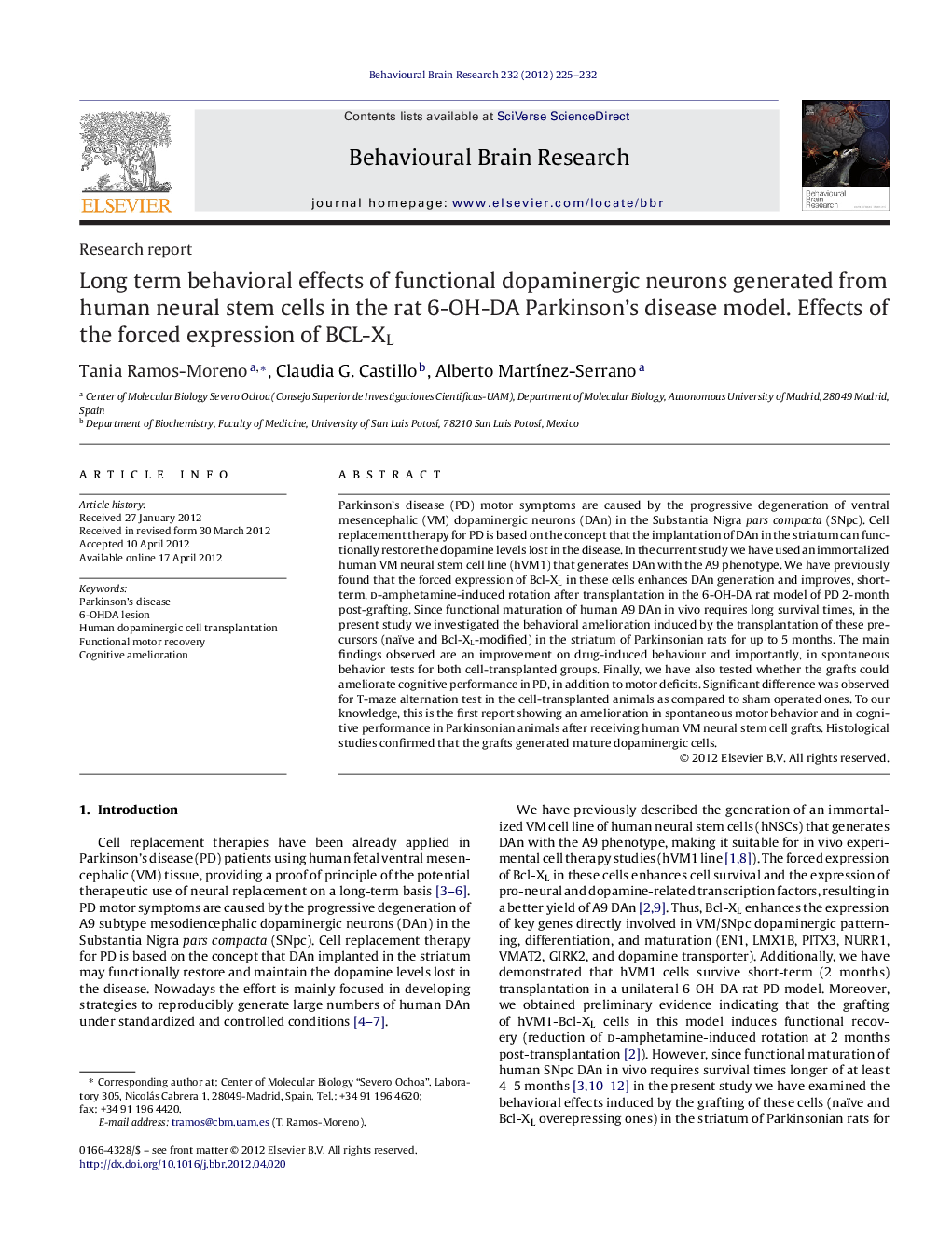| Article ID | Journal | Published Year | Pages | File Type |
|---|---|---|---|---|
| 4313116 | Behavioural Brain Research | 2012 | 8 Pages |
Parkinson's disease (PD) motor symptoms are caused by the progressive degeneration of ventral mesencephalic (VM) dopaminergic neurons (DAn) in the Substantia Nigra pars compacta (SNpc). Cell replacement therapy for PD is based on the concept that the implantation of DAn in the striatum can functionally restore the dopamine levels lost in the disease. In the current study we have used an immortalized human VM neural stem cell line (hVM1) that generates DAn with the A9 phenotype. We have previously found that the forced expression of Bcl-XL in these cells enhances DAn generation and improves, short-term, d-amphetamine-induced rotation after transplantation in the 6-OH-DA rat model of PD 2-month post-grafting. Since functional maturation of human A9 DAn in vivo requires long survival times, in the present study we investigated the behavioral amelioration induced by the transplantation of these precursors (naïve and Bcl-XL-modified) in the striatum of Parkinsonian rats for up to 5 months. The main findings observed are an improvement on drug-induced behaviour and importantly, in spontaneous behavior tests for both cell-transplanted groups. Finally, we have also tested whether the grafts could ameliorate cognitive performance in PD, in addition to motor deficits. Significant difference was observed for T-maze alternation test in the cell-transplanted animals as compared to sham operated ones. To our knowledge, this is the first report showing an amelioration in spontaneous motor behavior and in cognitive performance in Parkinsonian animals after receiving human VM neural stem cell grafts. Histological studies confirmed that the grafts generated mature dopaminergic cells.
► Transplantation of human ventral mesencephalic cells (VMhNSCs) in rat Parkinson model. ► 5-month follow up: behavioural and histological studies. ► Significant motor recovery in drug-induced and spontaneous motor behaviour. ► Cognitive deficits less pronounced in PD rats grafted with VM hNSCs. ► Functional efficacy of human SNpc DAn in vivo requires at least 4–5 month survival.
